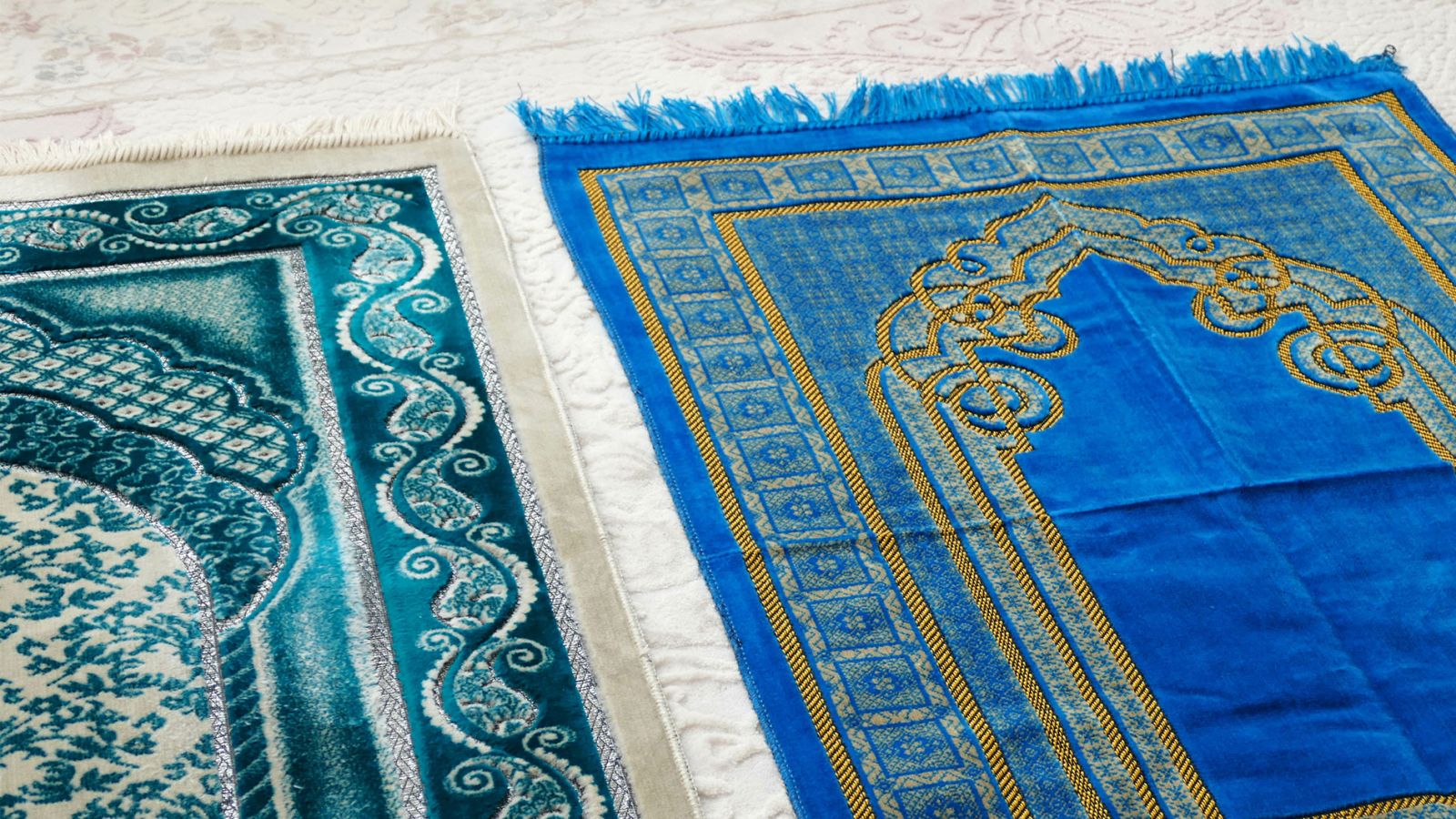Ruling on the One Who Speaks Ill of the Wives of the Prophet ﷺ
Al-ʿAllāmah Aḥmad ibn Yaḥyá al-Najmī


Verily, those who accuse chaste women who never even think of anything touching their chastity and are good believers, then they are cursed in this life and in the Hereafter, and for them will be a great torment on the Day when their tongues, hands and legs will testify against them as to what they used to do.
[Q]: There is an individual at (my) job who is a Rāfidhī. Some of the workers informed me that he has explicitly accused the Mother of the Believers ‘Aa’ishah (raḍīyallahu ʿanhā) of fornication (and the refuge is with Allāh). Knowing that he did not do that in public and there has not occurred between me and him a debate regarding the issue, is it permissible for me to classify him with kufr (disbelief) by my saying: ‘You are a Kāfir (disbeliever) because you hold this belief’ or is it a must that I sit with him and debate with him regarding the issue knowing that he openly displays (the qualities of) hypocrisy and lying; and is it permissible to sit with him inside or outside of work even when the issue does not arise? Please give us a verdict, may Allāh reward you.
[A]: I say, whoever explicitly accuses the Mother of the Believers ‘Aa’ishah the daughter of al-Siddīq (raḍīyallahu ʿanhumā), the one who Allāh has vindicated from above the seven heavens and has sent down her vindication in verses which are recited until the Day of Judgment; whoever does that then he has disbelieved with a kufr that expels him from the religion, and he is bound to spend eternity in the fire. Because he has belied Allāh (‘azza wa Jal) in His informing of her vindication. Al-Qurṭabī has mentioned that in his Tafsīr from Mālik. Ibn Kathīr, may Allāh have mercy upon him, said in his Tafsīr of the verse:
“Verily those who accuse chaste women who never even think of anything touching their chastity and are good believers, then they are cursed in this life and in the Hereafter, and for them will be a great torment. On the Day when their tongues, hands, and legs will testify against them as to what
they used to do.”
[Sūrah al-Nūr, 24:23-24]
He, may Allāh have mercy upon him, said: “This is a threat from Allāh the Exalted to those who accuse chaste women who never think of anything touching their chastity and are believers, being all inclusive. Therefore, the Mothers of the Believers are even more entitled to enter into this than every other chaste woman. Especially she who was the reason for the revelation of this verse, that is ‘Aa’ishah the daughter of as-Siddīq. The scholars, may Allāh have mercy upon them, are in total agreement that whoever reviles her and accuses her with that which he has accused her with after that which has been mentioned in the verse, then he is a Kāfir; because he rejects the Qurʾān. Regarding the other Mothers of the Believers there are two sayings (amongst the scholars). The most correct of them is that they are similar to her (in this ruling), and Allāh knows best.”
And upon this, there is consensus that whoever reviles ‘Aa’ishah (raḍīyallahu ʿanhā) (accusing) her with fornication after Allāh has vindicated her from it in His Book, then he is a Kāfir whose blood and wealth are permissible, and it is obligatory that he be killed (by those in judicial authority).
Shaykh al-Islām Ibn Taymīyyah, may Allāh have mercy upon him, said in his book, as-Saarim al-Maslool ‘Alā Shaatimir-Rasūl (sallāllahu ʿalayhi wa-sallam) Pg. 565-567: Chapter: Reviling the Wives of the Prophet: “al-Qaadee Abū Ya’lā, may Allāh have mercy upon him, said: ‘Whoever wrongfully accuses ‘Aa’ishah of al-Zinā (fornication) after Allāh has vindicated her from it has disbelieved with there being no difference of opinion concerning this.’ More than one of the scholars have reported the consensus upon this and more than one of the Imāms has explicitly stated this ruling. It has been narrated from Mālik: “Whoever reviles Abū Bakr is to be lashed and whoever reviles ‘Aa’ishah, accusing her with that which Allāh has vindicated her from then he is killed; for he has opposed the Qurʾān:
“Allāh forbids you from it and warns you not to repeat it if you are indeed believers.”
[Sūrah al-Nūr, 24:17]
Abū Bakr ibn Ziyād an-Naysaabooree said: I heard al-Qāsim ibn Muḥammad saying to Ismāʿīl ibn Is-haaq: “al-Ma’moom came with two men bound in chains. One of them had cursed Fāṭimah and the other had cursed ‘Aa’ishah. So he commanded with the killing of the one who had cursed Fāṭimah and he left the other. So Isma’eel said to him: ‘What is their ruling except that they both are to be killed? For the one who has cursed ‘Aa’ishah has rejected the Qurʾān. And upon this is the history of the people of Fiqh and knowledge from the Ahlul-Bayt and other than them. Abū as-Saa’ib said: “One day I was in the presence of al-Ḥasan ibn Zayd ad-Daa’ee in Tabaristaan. He used to wear woolen clothing and command the good and forbid the evil. He would set out every year with twenty-thousand dīnārs towards the City of Peace (al-Madīnah) and divide it amongst the children of the companions that were still alive. There was a man in his presence who mentioned ‘Aa’ishah with a vile statement of al-Faahishah (accusing her of illegal sexual intercourse). So he said: ‘O young man; strike his neck!’ The ‘Alawiyoon (the Shīʿah) said: ‘This man is from our Shīʿah (group, sect).’ He said: ‘The Refuge of Allāh is sought. This is a man who has reviled the Prophet (ṣallallāhu ʿalayhi wa-sallam). Allāh the Exalted has said:
“Bad women are for bad men and bad men are for bad women. Good women are for good men and good women are for good men. Such good people are innocent of every bad statement which they say; for them is forgiveness and a generous provision.”
[Sūrah al-Nūr, 24:26]
So if ‘Aa’ishah is evil then the Prophet (ṣallallāhu ʿalayhi wa-sallam) is evil. So he (the man) is a Kāfir!’ He struck his neck while I was present.” [Reported by al-Lālikaa’ee]. It has been narrated on the authority of Muḥammad ibn Zayd, the brother of al-Ḥasan ibn Zayd that a man came upon him from ʿIrāq and he mentioned ‘Aa’ishah with evil. So he went towards him with a pole and beat his head and killed him. They (the Shīʿah) said: ‘He is from our Shīʿah (sect, group) and from Banī al-Abā’ !!’ He said: ‘This one is a two-horned goat and the two-horned goat deserves to be killed!’” As for the one who reviles other than ‘Aa’ishah from his wives (raḍīyallahu ʿanhunna) then there are two sayings:
1) That he is similar to the one who reviles other than them from the companions, based upon that which will come.
2) This is the most correct: That whoever accuses any one of the Mothers of the Believers with al-Zināʾ then he is like the one who has accused ‘Aa’ishah (raḍī Allāhu ʿanhā). The meaning of that has preceded on the authority of Ibn ʿAbbās. Because that contains ignominy and disgrace against the Messenger of Allāh (ṣallallāhu ʿalayhi wa-sallam) and harms him; greater harm than marrying them after his death. Clarification of that has preceded in what has past.
As for sitting with him and treating him as a peer then this is not permissible. However, if you happen to come to a gathering and he is sitting therein then try not to be easygoing and delightful towards him and one may advise him with what he is able. The one who reviles ‘Aa’ishah, the one whom Allāh has vindicated and is the wife of the Prophet (ṣallallāhu ʿalayhi wa-sallam); rather, she was the most beloved of his wives to him, then he is a Kāfir and it is permissible to identify him with Kufr after an-Naseehah has preceded; and with Allāh is the tawfīq.
Source: al-Fatāwá al-Jaliyyah 2/112 Question No. 61
Translated by: Raha ʿAzīzudīn Batts
Most Popular: Last 30 Days

















